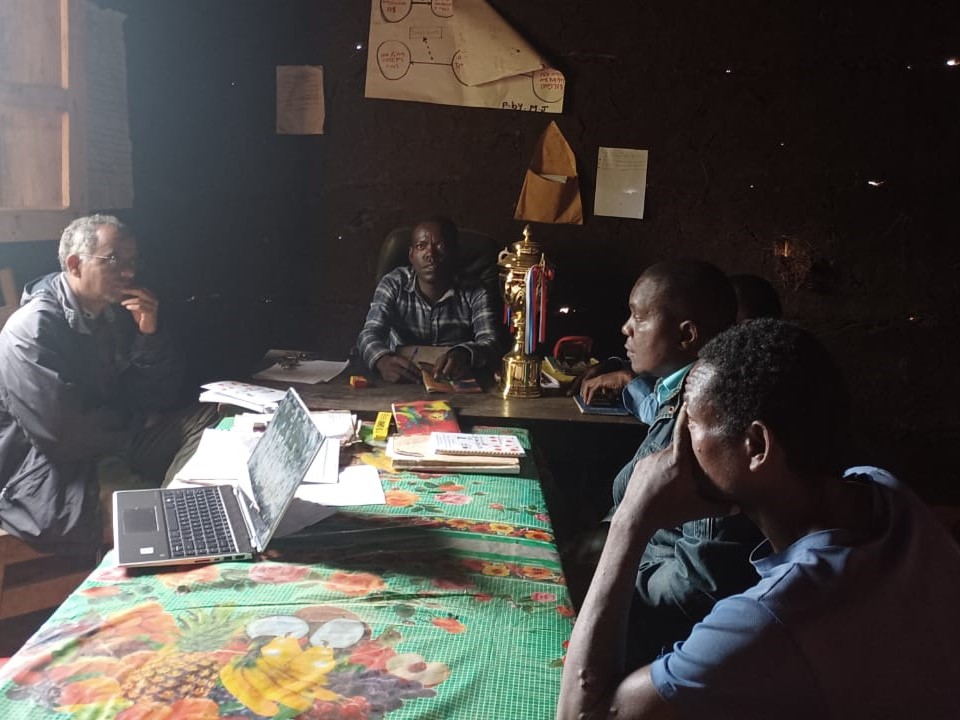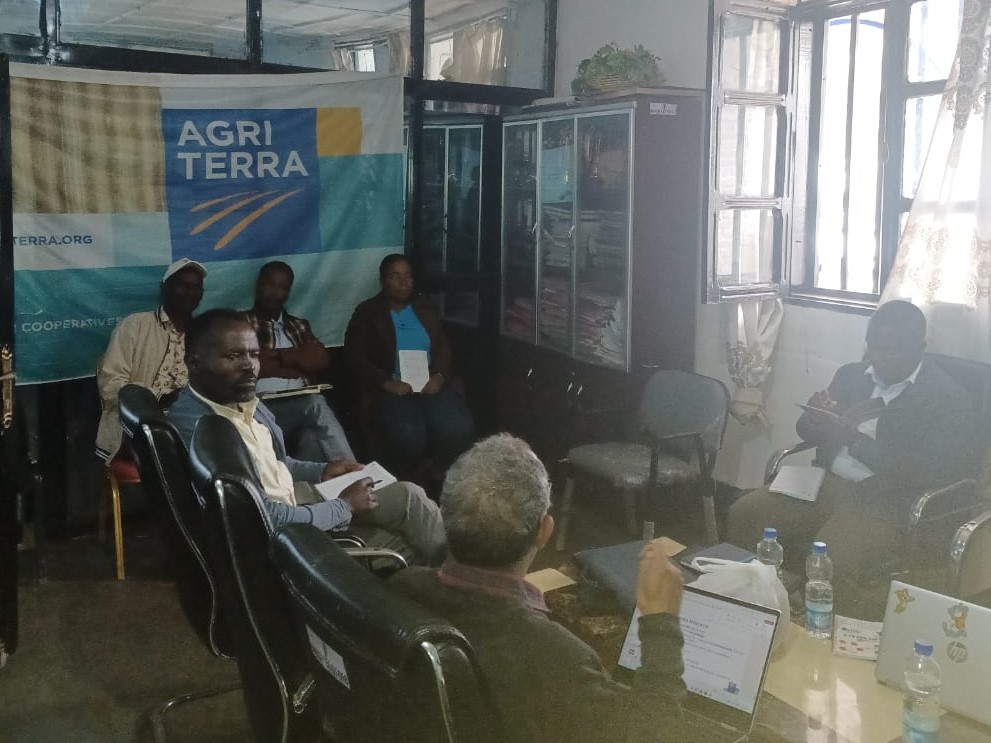Experiencing the International Agripool with Moses Kyakora
17-04-2023At Agriterra, a vibrant community of hands-on experts forms the Agripool network. That’s not only the case for our peer-to-peer exchange from the Netherlands; we also facilitate knowledge transfer in the regions in which we are active. One of those local professionals is Moses Kyakora of Bukonzo Organic Farmers Cooperative Union in Uganda. For Agriterra, the marketing manager and researcher joined a cooperative union in Southwest Ethiopia to perform a 9-day partnership assessment. He would recommend it to anyone.
Learning experience
Moses first came into contact with Agriterra’s team at a congress in Rwanda, where he was present as a representative for his cooperative. The Ugandan has been in the business for over eight years and has a family background in coffee trading too. Based on this extensive knowledge of this industry as well as his familiarity with the inner workings of cooperatives, Agriterra asked Moses to be part of an upcoming partnership assessment in Ethiopia. “I may have vast experience”, says Moses about the invitation, “but learning never ends. When this assessment was proposed to me, the first thing I felt was that I would be learning something new.”
That was indeed the case, he concludes now it has come to a close. He’s realised something, for instance: “Many things are the same in our unions. The challenges they have, are almost the same challenges we have in Uganda. Through sharing our experiences, I learned how to overcome several things. I saw how they approach it in Ethiopia and thought: I will bring this knowledge home.”
An example? “They sell their coffee according to the specifications of the region, something we don’t do yet in Uganda.” Instead, in his home country coffee is named after the species, making the branding less local. “Their approach was so interesting to get to know.”

Agent of change
At the Bench Maji Farmers Forest Coffee Producers Cooperative Union, Moses helped assess the opportunities for a partnership in business development with Agriterra, and also gave recommendations for what support could be needed. As an example, he names the difficulties of negotiation that the cooperative in Ethiopia has faced. “It’s a very big challenge for them. They have room for improvement here”, Moses explains.
In that way, Moses wasn’t the only one who would be learning: his professional knowledge is going to be part of a ‘good step towards improvement’, so he says. “I hope to be an agent of change. It would be very inspiring.”
The excitement of travel
Next to the excitement to learn and help, there was also the element of another type of discovery. “Being in a different country in Africa that I hadn’t traveled to before, it was amazing!” He says, looking back. This new experience in Ethiopia sometimes challenged Moses, but these bumps were easy to overcome. “They speak Amharic, but I do not. There were only a few staff members present that knew English. But I would speak what I could speak and elaborate, and the team of advisors would enhance it better in the local language.”
There were also some cultural differences that he ran into, for instance the difference in meals, Moses explains with a smile on his face. Looking back on the assessment now that it has been wrapped up, he can say with confidence that the country is beautiful. “It’s an experience of a fellow African country that I hadn’t gotten before.”

